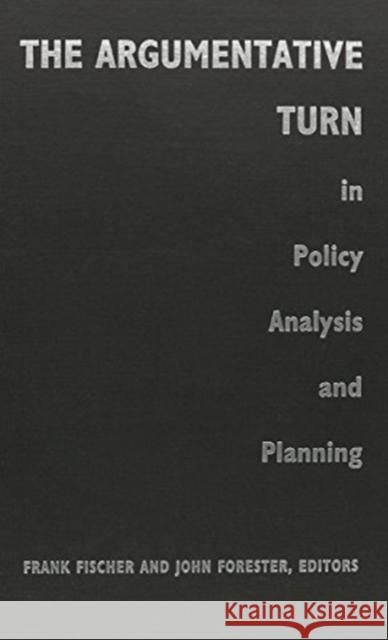The Argumentative Turn in Policy Analysis and Planning » książka
The Argumentative Turn in Policy Analysis and Planning
ISBN-13: 9780822313540 / Angielski / Twarda / 1993 / 352 str.
Public policy is made of language. Whether in written or oral form, argument is central to all parts of the policy process. As simple as this insight appears, its implications for policy analysis and planning are profound. Drawing from recent work on language and argumentation and referring to such theorists as Wittgenstein, Habermas, Toulmin, and Foucault, these essays explore the interplay of language, action, and power in both the practice and the theory of policy-making.
The contributors, scholars of international renown who range across the theoretical spectrum, emphasize the political nature of the policy planner's work and stress the role of persuasive arguments in practical decision making. Recognizing the rhetorical, communicative character of policy and planning deliberations, they show that policy arguments are necessarily selective, both shaping and being shaped by relations of power. These essays reveal the practices of policy analysts and planners in powerful new ways--as matters of practical argumentation in complex, highly political environments. They also make an important contribution to contemporary debates over postempiricism in the social and policy sciences.
"Contributors. "John S. Dryzek, William N. Dunn, Frank Fischer, John Forester, Maarten Hajer, Patsy Healey, Robert Hoppe, Bruce Jennings, Thomas J. Kaplan, Duncan MacRae, Jr., Martin Rein, Donald Schon, J. A. Throgmorton











